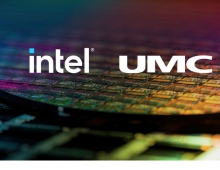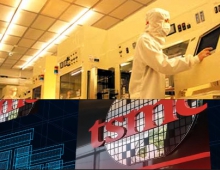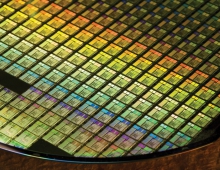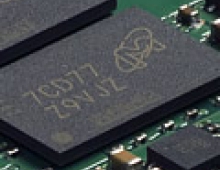
UMC To Invest $8 billion in 12-inch Wafer Fab in Taiwan
United Microelectronics Corporation (UMC), the world's No.2 contract chip maker, will invest $8 billion in a 12-inch wafer plant in Taiwan, to meet demand for chips in mobile devices.
The foundry today held a groundbreaking ceremony for its 300mm Fab 12A Phase 5 & 6 (P5 & P6) at its Tainan, Taiwan fab complex, with a schedule to install machines at the plant in the second half of 2013. The expansion begins UMC's new generation of 300mm manufacturing that will extend 28nm production and establish a foundation for 20nm and beyond.
Stan Hung, Chairman of UMC, said, "UMC remains optimistic about the long-term outlook of the semiconductor and foundry industries. However, with increasing industry volatility, a clearly defined business strategy is needed in order to take full advantage of upcoming market opportunities. We stay firm to our 'Customer-Driven Foundry Solutions' approach that is constituted on the classical foundry model and open ecosystem approach. This commitment enables true synergies between UMC, customers, and ecosystem partners. Based on this philosophy, we will continue to invest timely capex according to our key position in the supply chain so that customers, partners and UMC may prosper together. Cumulative capex for UMC's Fab 12A phases 1-4 is projected to reach US$ 8 billion, with P5 & P6 to add nearly US$ 8 billion more. There are further plans for P7 & P8. This balanced capacity expansion demonstrates UMC's determination to maintain self-sustainable growth."
Dr. Shih-Wei Sun, CEO of UMC, said, "This past decade, UMC's 300mm fabs in Taiwan and Singapore helped UMC strengthen our position as a first-tier foundry provider. Our internal R&D efforts continue to prove successful with the development of progressive advanced technologies. 28nm Poly SiON is now ramping mobile communication and computing products, 28nm Gate-Last HK/MG is set to start pilot production of flagship products in 2H this year, and 20nm HK-Last HK/MG and 14nm FinFET are advancing smoothly. UMC also cooperates closely with customers on 300mm specialty technologies such as HV, embedded non-volatile memory, BSI CMOS image sensor, 2.5D interposer, and 3D IC TSV to provide a truly comprehensive, leading foundry technology platform. We believe that supply chain collaboration will become increasingly important to address dynamic market requirements while minimizing risk. The P5-P8 fab complex will be characterized by close partnerships with customers and vendors to align with their technology roadmaps, enabling customers to introduce their future products while propelling UMC growth. Going forward, UMC's 'customer-driven foundry solution' approach will ensure UMC's sustained competitiveness, profitability, and ROE improvement for years to come."
UMC is currently lagging behind No.1 foundry player TSMC. However, tight supply of the process at TSMC has inspired 28nm process buyers to turn to UMC, GlobalFoundries and Samsung.
TSMC will also budget US$8-8.5 billion for expansion this year, with 28nm process capacity being the primary expansion item. Its Fab 15's first-phase project has entered volume production and is planned to rise output to 50,000 wafers of 28nm chips by the end of this year.
UMC is produsing 28nm chips for Texas Instruments (OMAP 5) and Qualcomm (integrated baseband chips).
TSMC's 28nm chips are used by Qualcomm, Broadcom, Nvidia and AMD, among others.
Stan Hung, Chairman of UMC, said, "UMC remains optimistic about the long-term outlook of the semiconductor and foundry industries. However, with increasing industry volatility, a clearly defined business strategy is needed in order to take full advantage of upcoming market opportunities. We stay firm to our 'Customer-Driven Foundry Solutions' approach that is constituted on the classical foundry model and open ecosystem approach. This commitment enables true synergies between UMC, customers, and ecosystem partners. Based on this philosophy, we will continue to invest timely capex according to our key position in the supply chain so that customers, partners and UMC may prosper together. Cumulative capex for UMC's Fab 12A phases 1-4 is projected to reach US$ 8 billion, with P5 & P6 to add nearly US$ 8 billion more. There are further plans for P7 & P8. This balanced capacity expansion demonstrates UMC's determination to maintain self-sustainable growth."
Dr. Shih-Wei Sun, CEO of UMC, said, "This past decade, UMC's 300mm fabs in Taiwan and Singapore helped UMC strengthen our position as a first-tier foundry provider. Our internal R&D efforts continue to prove successful with the development of progressive advanced technologies. 28nm Poly SiON is now ramping mobile communication and computing products, 28nm Gate-Last HK/MG is set to start pilot production of flagship products in 2H this year, and 20nm HK-Last HK/MG and 14nm FinFET are advancing smoothly. UMC also cooperates closely with customers on 300mm specialty technologies such as HV, embedded non-volatile memory, BSI CMOS image sensor, 2.5D interposer, and 3D IC TSV to provide a truly comprehensive, leading foundry technology platform. We believe that supply chain collaboration will become increasingly important to address dynamic market requirements while minimizing risk. The P5-P8 fab complex will be characterized by close partnerships with customers and vendors to align with their technology roadmaps, enabling customers to introduce their future products while propelling UMC growth. Going forward, UMC's 'customer-driven foundry solution' approach will ensure UMC's sustained competitiveness, profitability, and ROE improvement for years to come."
UMC is currently lagging behind No.1 foundry player TSMC. However, tight supply of the process at TSMC has inspired 28nm process buyers to turn to UMC, GlobalFoundries and Samsung.
TSMC will also budget US$8-8.5 billion for expansion this year, with 28nm process capacity being the primary expansion item. Its Fab 15's first-phase project has entered volume production and is planned to rise output to 50,000 wafers of 28nm chips by the end of this year.
UMC is produsing 28nm chips for Texas Instruments (OMAP 5) and Qualcomm (integrated baseband chips).
TSMC's 28nm chips are used by Qualcomm, Broadcom, Nvidia and AMD, among others.





















